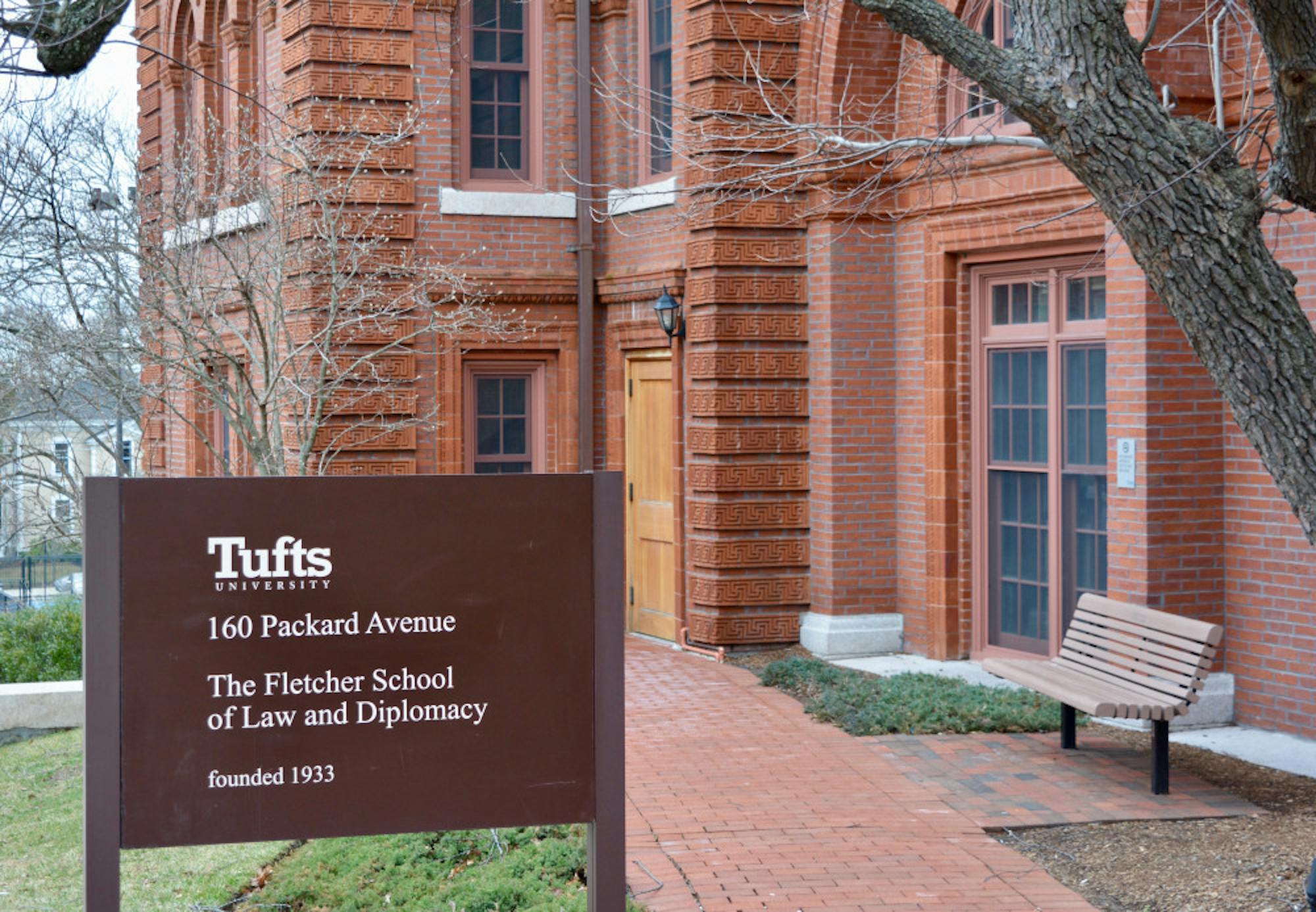Fletcher School Ph.D. student Hengrui Liu presented his research on China’s emission trading system on Wednesday, Nov. 3 at an in-person seminar in the Fletcher School's Crowe Room.Liu concluded that China’s implementation of an emission trading system was unsuccessful, prompting audience questions about whether a successful implementation is possible.
Liu, who is pursuing a Ph.D in economics and public policy, began the presentation by discussing the motivation behind his research.
“The biggest challenge of this century is climate change and how [we can] reduce carbon emissions,” Liu said.
Specifically, Liu wanted to examine the effectiveness of emission trading systems, such as carbon taxes and caps, at reducing emissions in developing countries.
“I [wanted] to see if a developing country implements this policy … first, whether this policy will be effective, second, whether this policy will be cost effective,” Liu said.
To address the first question, Liu presented data on the emissions of carbon dioxide, sulfur dioxide and fine particulate matter in regions of China where the emission trading system was implemented in recent years. He compared it to regions where an emission trading system has not been implemented.
“The pilot ETS programs in China, their effects on the emissions reductions are not significant and that policy right now seems not robust,” Liu said.
After presenting the data and his conclusions, Liu took questions from the approximately 30 audience members attending over Zoom and in person. As Amy Jaffe, research professor and managing director of the Climate Policy Lab at Fletcher, posed a question to Liu about the specific policy designs used, she offered her own take on his conclusion.
“I think the policy design itself was purposely weak," Jaffe said. "The central government was trying to experiment at the local level with these different pilots before creating a national system. And then each pilot system was using a different approach. I don't think anyone really expected that emissions would go down, because it was this very soft approach to experimentation with emissions trading.”
Virtual attendee Charlie Heaps asked a related question via Zoom's chat feature.
“Can you conclude that ETS programs in general have no significant impact? Or that only this particular ETS had no impact?" Heaps asked.
Liu responded that his research deals with the specific conditions of China’s pilot emission trading system, suggesting that the failure of the program could not necessarily be extrapolated to all emission trading systems.
The question-and-answer portion of the presentation continued with clarifications about how the data was collected and ideas about how to further develop Liu's research in the future.
Toward the end of the question-and-answer segment, Jaffeadded her takeaway from the presentation regarding the potential for an emission trading system to reduce emissions.
“In theory there’s nothing wrong with this tool. In practice, there was something wrong with this tool because of the way they designed these pilots,” Jaffe said.
Liu also noted that in the future he will look at environmental justice within emissions trading systems and explore how policies affect different demographics of people.
“I’m trying to find the distributional effects of the trainers’ pilot ETS,” Liu said. “Whether the implementation of ETS can affect people living in different regions — for example, people living in urban areas versus people living in rural areas. This policy might have different effects [depending] on your location and your income levels.”
Liu explained how the varied distribution of effects across different demographics should factor into the implementation of an emission trading system, emphasizing why research on that topic is important.
“If [in] one province emissions [reduce] faster than [another] … part of people will benefit more and the other people will suffer,” Liu said.
Liuplans to look at power plant-level data next, and he concluded his presentation with a graph of the data he plans to use.






